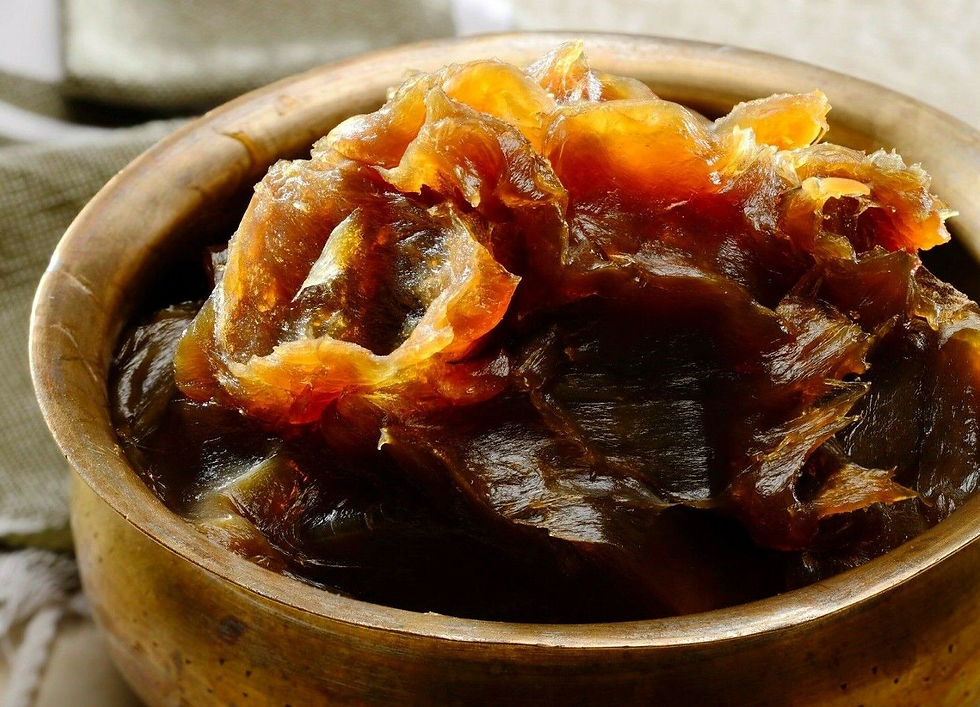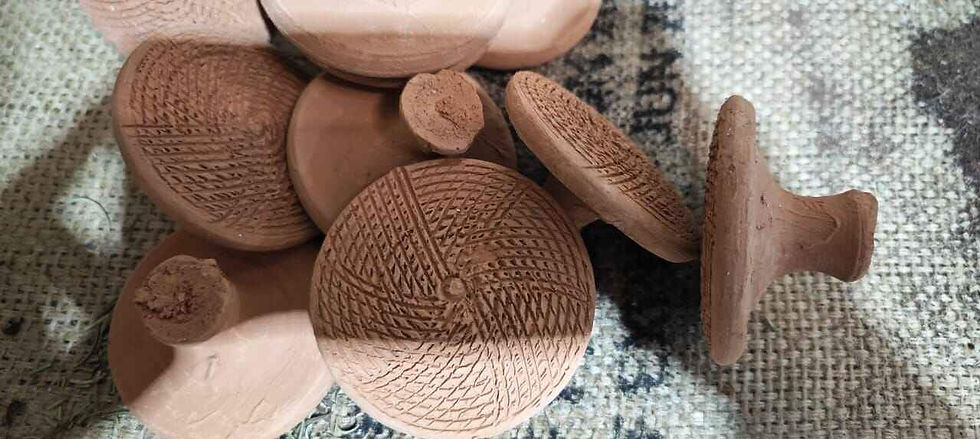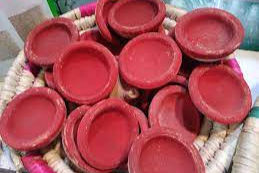Must Have Moroccan beauty products on your next trip to Morocco
- iris de neve
- Oct 28, 2025
- 5 min read
Updated: Oct 29, 2025

From black soap to argan oil, these are must have the Moroccan beauty products to consider on your next trip.
From the sunlit souks of Marrakech to the serene mountain villages of the High Atlas, Morocco is a land of vibrant colors, natural ingredients, and age-old beauty traditions. For generations, Moroccan women have utilized the land's oils, clays, and botanicals to nurture their skin, hair, and overall wellbeing. Today, these practices form the basis of a flourishing natural beauty culture that has captivated the world. Anyone visiting Morocco will know that the country’s souks are a treasure trove for handcrafted souvenirs. However, one aspect often overlooked by travelers is the extensive range of Moroccan beauty products available at the markets. While argan oil has gained global fame, there are many more Moroccan cosmetics to explore while shopping.
Inclusive and Ethical Beauty
Moroccan beauty goes beyond appearances, focusing on ritual, community, and a connection to nature. These traditions have evolved over centuries, incorporating Berber, Arab, and Andalusian influences. Traditional hammams (public bathhouses) have been central to Moroccan self-care culture, where women come together to cleanse, exfoliate, and nourish their bodies in a deeply social and sensory experience. Today, this tradition and the Moroccan beauty products that accompany it are accessible to people of all ages and backgrounds.
Pure Moroccan argan oil is a beauty essential

No discussion about Moroccan beauty is complete without mentioning argan oil. This golden liquid is rich in antioxidants, vitamin E, and fatty acids, making it a powerhouse for both skin and hair. Sourced from the nuts of the argan tree, which grows exclusively in southwest Morocco, this versatile oil has been used by Amazigh (Berber) women for generations. Argan oil is a staple in Morocco and can be found in a wide range of products, from body oils and hair serums to facial oils.
Did you know? Producing just one liter of argan oil takes 24 hours.
However, not all oils are created equal. Due to its popularity, many touristy imitations are sold at high prices. To ensure authenticity, seek out 100% pure, cold-pressed argan oil from a local women's cooperative in the Essaouira or Agadir region. Genuine argan oil absorbs quickly, has a slightly nutty scent, and leaves your skin glowing without a greasy feel. Did you know? Producing just one liter of argan oil takes 24 hours.
Another remarkable product is Moroccan Beldi

Using a sticky, dark black soap to cleanse your skin might seem unusual. However, if you step into any hammam, you’re likely to notice the distinct aroma of savon beldi, also referred to as Moroccan black soap. Its unique appearance comes from crushed olives and olive oil. When applied to the body before exfoliation, it softens the skin to a buttery texture, making exfoliation effortless. It may not appear glamorous, but it is effective. Purchase a jar from a local hammam or spice market, and you’ll have an authentic Moroccan spa experience ready for your shower.
Rhassoul Clay: A Key Element in Moroccan Skin Care

Sourced from the Atlas Mountains, rhassoul (or ghassoul) clay has been a cornerstone of Moroccan beauty routines for over a thousand years. Although it may resemble shards or compacted earth, this clay is abundant in minerals such as silica, magnesium, and potassium. Its name means “that washes” and it has been used for detoxifying and cleansing the skin for millennia.
Its name means “that washes” and it has been used for detoxifying and cleansing the skin for millennia.
Moroccan women often combine the clay with rosewater or orange blossom water to create a face mask, body wrap, or even a gentle shampoo. It effectively removes impurities, reduces oiliness, and leaves the skin noticeably smoother after just one application. Additionally, it is hypoallergenic and is traditionally given as a wedding gift in Morocco. If you're assembling a Moroccan spa kit, this is an essential item.
Nila Powder, nature’s revitalizer

Have you ever wondered how Moroccan women achieve their fresh, radiant complexion? The secret is Nila powder. This indigo blue powder is widely available throughout Morocco and is traditionally used to enhance and soften the skin. Typically sourced from the southern desert areas, this ultra-fine powder is abundant in minerals and has long been a favorite among brides preparing their skin for weddings and special events. When combined with rosewater or milk, Nila creates a silky mask that helps even out skin tone, diminish the appearance of dark spots, and leave the skin visibly glowing. In the realm of Moroccan beauty products, this is essential.
Rosewater and Orange Blossom Water

In Morocco, rose and orange blossom waters are essential ingredients in cosmetics. These floral elixirs are either combined with clays or used on their own as toners. Rosewater, typically distilled in the Valley of Roses near Kelaat M’Gouna, is a Moroccan favorite due to its natural astringent properties that soothe irritation and balance the complexion. On the other hand, orange blossom water, known as ma zhar, is used for facial cleansing and adding fragrance to bathwater.
M’hekka, terracotta clay, pumice stone

When browsing the souks, you might come across some carved ceramic discs with a handle. These are known as M’hekkas, crafted from terracotta clay, and are intended to exfoliate rough areas such as the feet, knees, elbows, and other dry spots. Any Moroccan woman (and man) can attest that they effectively remove dead skin and calluses, leaving your skin feeling soft, smooth, and rejuvenated.
Remember to get a Kessa mitt

For an authentic hammam experience, consider purchasing a traditional Moroccan Kessa mitt. Use the mitt to apply Beldi Moroccan soap, massaging it over your body and letting it sit for 5-10 minutes before rinsing. This mitt helps eliminate dry skin, reduces the appearance of strawberry legs, and decreases the risk of ingrown hairs.
Contents of a Moroccan Makeup Bag

Moroccan women often dedicate significant time to body care, and their traditional makeup practices are just as captivating. While shopping, you can find genuine Moroccan makeup. Here's what to look for:
Moroccan Kohl

Seeking that sultry, smoky eye look? Consider Ithmid Kohl, an ancient eye cosmetic with origins in Egypt. Composed of natural ingredients like Ithmid Kohl powder, date seed powder, and olive pit powder, it serves as an excellent alternative to commercial eyeliners. Use a slender stick, traditionally crafted from a sheep’s horn, to apply and achieve a bold, defined eye. Beyond its aesthetic appeal, it is also believed to protect against the evil eye and alleviate redness and eye irritation. You can find it in markets, packaged in ceramic or metal containers.
Aker Fassi: A Striking Moroccan Cosmetic Product

Derived from dried poppy petals and pomegranate skin, aker fassi is a vivid, natural pigment used for blush or lip tint. Typically available in small clay pots or as a painted terracotta disc, it is activated by dipping a damp brush or finger onto the surface. This traditional cosmetic has been a staple in Moroccan bridal beauty rituals, providing a fresh, healthy glow that endures throughout the day.
Why Do Moroccans Always Smell Pleasant? Alum and Musk

In Morocco's warm climate, maintaining a pleasant scent is essential. Alum stones, known as chebba, play a crucial role. This transparent potassium alum crystal serves as a natural deodorant by eliminating odor-causing bacteria without hindering the skin's natural processes.
Another aromatic treasure found in the Moroccan souks is musk bars. These scented wax blocks are used as perfume and are often infused with fragrances like white musk, amber, or rose. Apply them to your neck or behind the ears for a subtle, long-lasting scent.
And, when in Morocco, discover Henna

Of course, when discussing Moroccan beauty products, henna is a must-mention. Derived from finely ground henna leaves, this paste is used to craft intricate patterns on hands and feet, particularly during weddings and festivals. It is also popular for dyeing hair, imparting a rich, earthy hue. While exploring the souks from Marrakech to Casablanca, you'll find numerous spots offering henna hand designs.

_edited.png)




Comments